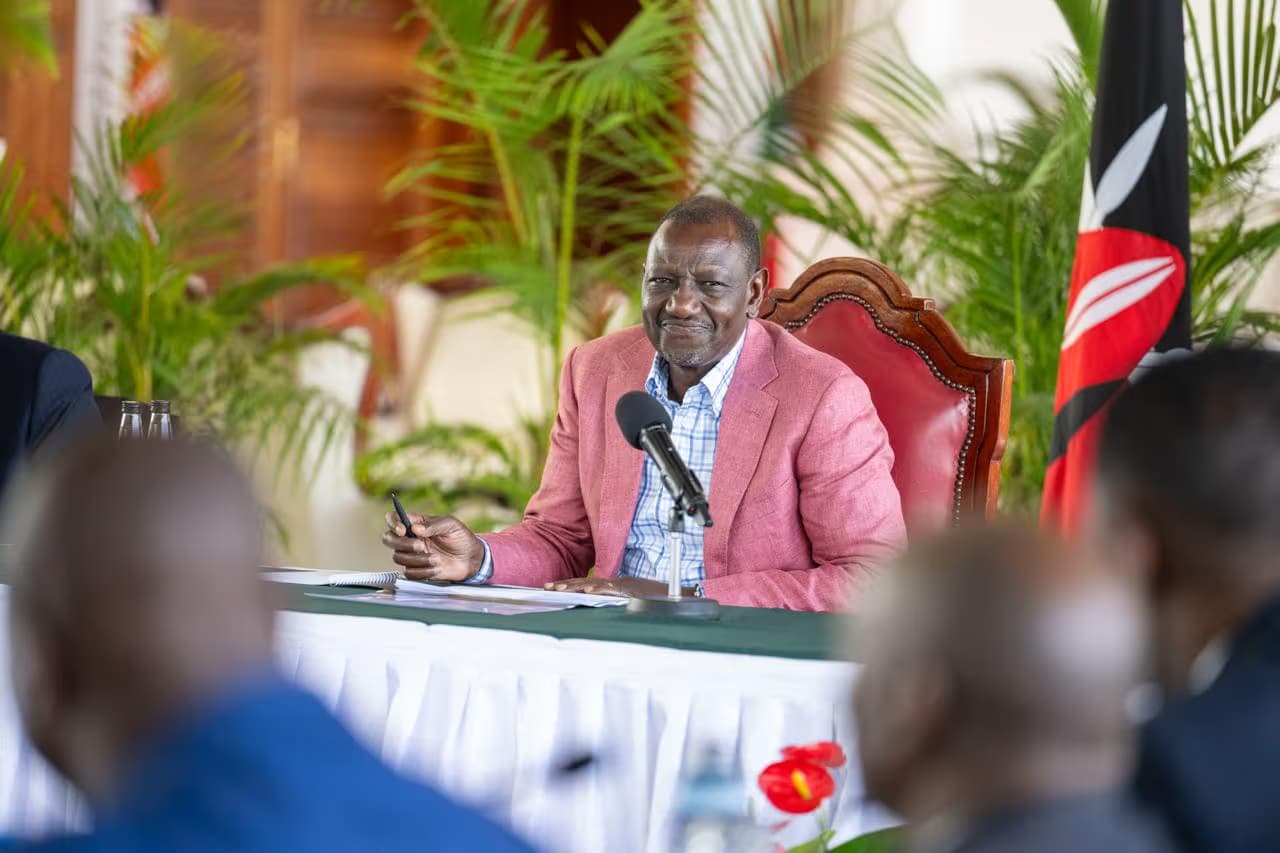We're loading the full news article for you. This includes the article content, images, author information, and related articles.
President William Ruto has vowed to elevate Nairobi to a world-class city, addressing persistent issues of waste management, infrastructure, and public safety through a collaborative effort between national and county governments and the private sector.

President William Ruto announced on Sunday, October 12, 2025, a comprehensive plan to restore Nairobi to global standards, tackling widespread concerns about filth, inadequate infrastructure, and public safety. Speaking at the 70th anniversary celebration of the Africa Inland Church (AIC) Ziwani in Nairobi, President Ruto emphasized that the national government would partner with the Nairobi City County Government, led by Governor Johnson Sakaja, and engage the private sector to achieve this ambitious transformation.
The President highlighted three key priorities: cleaning the city, improving road networks, and enhancing street lighting. He stated that Nairobi, as a crucial economic hub, must reflect the image of a modern, rapidly developing capital. This commitment comes amid growing public dissatisfaction with the city's deteriorating conditions, including ubiquitous dust, unclean roads, and overflowing sewers.
Nairobi's urban development has long been guided by various plans, including the Nairobi Integrated Urban Development Master Plan (NIUPLAN), launched in 2014 in collaboration with the Japan International Cooperation Agency (JICA). NIUPLAN aims to transform Nairobi into a "world-class African metropolis" by 2030, focusing on balanced growth, improved service delivery, environmental resilience, and enhanced quality of life.
The current administration's efforts build upon existing initiatives. The Nairobi River Regeneration Project, launched in March by President Ruto, is already underway, employing thousands of young people to unclog sewers, expand riverbanks, and construct trunk sewers. This project aims to restore 27.2 kilometers of the river and its tributaries, reduce pollution by up to 90%, and resettle vulnerable communities by 2027. The Nairobi City County government has also been conducting clean-up operations, including removing overhanging signage, clearing hawkers, and general city cleaning, with a focus now shifting from the Central Business District (CBD) to residential areas.
The proposed overhaul aligns with Kenya's Vision 2030, which seeks to transform the country into a newly industrializing, middle-income nation by 2030, offering a high quality of life in a clean and secure environment. Effective waste management is crucial for this vision, with policies such as the Sustainable Waste Management Act 2022 and the Circular Economy Solid Waste Management Approach for Urban Areas in Kenya providing a legal framework.
President Ruto emphasized the importance of collaboration, stating that the national government would provide resources to support Nairobi County's efforts. The engagement of the private sector is also a key component, with agreements reportedly in the final stages to expand clean-up initiatives across the city. This multi-agency approach, involving government entities, the private sector, and local communities, is seen as vital for sustainable urban development.
Analysts suggest that the success of this development plan hinges on clear timelines, defined costs, and robust safeguards. The challenges are significant, including inadequate waste management infrastructure, limited resources for recycling, and inefficient practices in waste collection. The informal nature of much of the waste management sector also poses environmental and health risks, particularly for communities near dumpsites and informal waste workers.
The ambitious target of transforming Kenya into a first-world nation by 2055, as expressed by President Ruto, underscores the long-term implications of these urban development efforts. Achieving this will require sustained political will, consistent implementation, adequate funding, and meaningful public engagement.
While the President's commitment is clear, specific details regarding the funding mechanisms, precise timelines for various phases of the clean-up, and the exact nature of private sector involvement remain to be fully articulated. The long-standing challenges of corruption and lack of disciplined execution in public works projects have historically hindered urban development efforts in Nairobi. Furthermore, the sustainability of such large-scale initiatives beyond initial political impetus is a recurring concern.
President Ruto indicated that agreements with the private sector for city-wide clean-up are in their final stages. The Nairobi River Regeneration Project is ongoing with a target completion of 2027. The Nairobi City County Integrated Development Plan 2023-2027 also outlines development priorities for the current five-year period.
Observers will be closely watching for the formalization of agreements with the private sector, the allocation of national government resources to Nairobi County, and the tangible progress of clean-up and infrastructure projects. The effectiveness of community engagement and the long-term sustainability of waste management solutions will be critical indicators of success. The political landscape, particularly with figures like Moses Kuria expressing interest in the Nairobi gubernatorial seat in 2027 with a focus on fixing the city, adds another dimension to watch.
For further reading, explore reports on the Nairobi Integrated Urban Development Master Plan (NIUPLAN) and the Nairobi City County Integrated Development Plan 2023-2027. Additionally, articles detailing the ongoing Nairobi River Regeneration Project provide more context on specific environmental restoration efforts.
Keep the conversation in one place—threads here stay linked to the story and in the forums.
Sign in to start a discussion
Start a conversation about this story and keep it linked here.
Other hot threads
E-sports and Gaming Community in Kenya
Active 9 months ago
The Role of Technology in Modern Agriculture (AgriTech)
Active 9 months ago
Popular Recreational Activities Across Counties
Active 9 months ago
Investing in Youth Sports Development Programs
Active 9 months ago